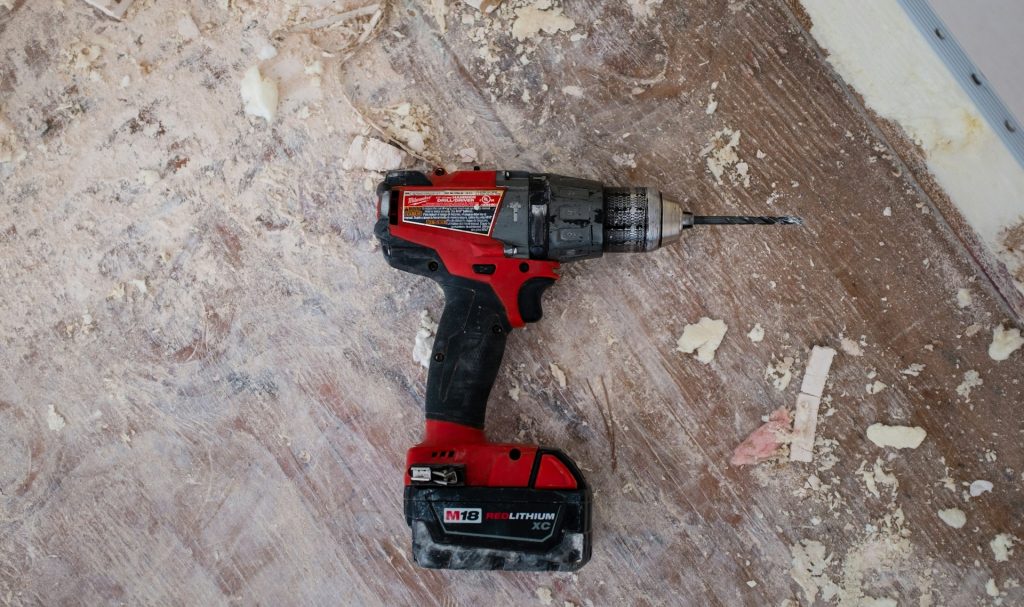Are you wondering what a concrete screw looks like? Concrete screws are a popular fastening option in construction and DIY projects. They are designed to be used in concrete, brick, and other masonry materials. Concrete screws are a type of anchor that can be used to secure items to a wall or floor.
Concrete screws are typically made from steel and have a blue coating. They come in a variety of sizes and lengths, depending on the application. Some popular brands of concrete screws include DeWalt fasteners, Powers fasteners, and Tie Max Pro fasteners. As a trusted wholesale distributor for over 65 years, Fastening Specialists can provide you with the best in product value, insight, code expertise, and order fulfillment.
Understanding Concrete Screws
When it comes to fastening objects to concrete surfaces, concrete screws are a popular choice. They are versatile, easy to install, and offer a strong hold. In this section, we will discuss the materials and design of concrete screws and the different types of concrete screws available.
Materials and Design
Concrete screws are typically made from hardened steel to provide strength and durability. They are designed with a threaded shaft and a sharp point to penetrate the concrete surface. The tip of the screw can vary, with some screws featuring a self-tapping tip, while others have a tapcon-style thread. The head of the screw can also vary, with hex washer head and Phillips head being the most common.
Types of Concrete Screws
There are several types of concrete screws available, each with its own unique features and benefits. Some of the most common types of concrete screws include:
- Tapcon screws: These screws feature a blue coating and a self-tapping tip, making them easy to install without the need for pre-drilling. They are ideal for light to medium-duty applications.
- Self-tapping concrete screws: These screws have a sharp point and a thread that is designed to tap its own hole in the concrete surface. They are ideal for medium to heavy-duty applications.
- Hex washer head concrete screws: These screws feature a hexagonal head with a built-in washer that provides a secure grip on the concrete surface. They are ideal for heavy-duty applications.
- Phillips head concrete screws: These screws feature a Phillips head that is designed to be used with a Phillips screwdriver. They are ideal for light to medium-duty applications.
Fastening Specialists is a trusted wholesale distributor of concrete screws, with over 65 years of experience in the industry. Our wide selection of concrete screws includes DeWalt fasteners, Powers fasteners, and Tie Max Pro fasteners. We pride ourselves on providing our customers with the best in product value, insight, code expertise, and order fulfillment.
The team at Fastening Specialists provides advice and best use-cases, but always check with local building codes and engineers for correct usage instructions.
Preparation and Installation
Before installing a concrete screw, it is important to properly prepare the surface and have the necessary tools on hand.
Drilling Pilot Holes
To install a concrete screw, you will need to drill a pilot hole. The size of the hole will depend on the size of the screw you are using. It is important to use the correct size drill bit and masonry bit to ensure the hole is the right size and to avoid damaging the surface. A hammer drill is recommended for drilling into concrete.
Once you have drilled the hole, you will need to clean out any debris to ensure the screw can penetrate the surface properly. This can be done using a wrench or socket.
Setting the Screw
To set the screw, insert it into the hole and turn it clockwise. Use a wrench or socket to tighten the screw until it is snug against the surface.
It is important to note that the screw should not be over-tightened, as this can cause the surface to crack or the screw to break.
When selecting concrete screws, it is important to choose a high-quality product from a trusted wholesale distributor like Fastening Specialists. With over 65 years of experience, Fastening Specialists is the go-to source for fastenings. Our team provides expert advice and best use-cases, but always check with local building codes and engineers for correct usage instructions.
Remember to always follow proper installation procedures when installing concrete screws to ensure a secure hold.
Anchoring in Different Materials
When it comes to anchoring, different materials require different types of anchors. Here are some of the most common materials and the types of anchors that work best:
Concrete and Masonry
Concrete and masonry are some of the most common materials used in construction. For anchoring into concrete, concrete screws are a great option. These screws are designed to hold in concrete and other masonry materials. They come in different sizes and lengths, so you can choose the right one for your project.
DeWalt fasteners, Powers fasteners, and Tie Max Pro fasteners are some of the most trusted brands for concrete screws. They are known for their high-quality products that are designed to last. As a trusted wholesale distributor for over 65 years, Fastening Specialists is also a great option for finding the right concrete screws for your project.
Brick, Block, and Mortar
Brick, block, and mortar are also common materials used in construction. For anchoring into these materials, wedge anchors are a great option. These anchors are designed to hold in place in brick, block, and mortar. They come in different sizes and lengths, so you can choose the right one for your project.
When it comes to finding the right wedge anchors, DeWalt fasteners, Powers fasteners, and Tie Max Pro fasteners are some of the best options. As a trusted wholesale distributor for over 65 years, Fastening Specialists has the expertise and knowledge to help you find the perfect wedge anchors for your project.
Remember, it’s important to always check with local building codes and engineers for correct usage instructions. The team at Fastening Specialists provides advice and best use-cases, but it’s important to ensure that you are following all necessary guidelines for your specific project.
Applications and Use Cases
Concrete screws are versatile fasteners that can be used in a variety of applications. They are commonly used for anchoring fixtures and shelving to concrete block walls. Concrete screws have high holding values and are often used for hanging heavy items such as electrical boxes, handrails, and machinery.
Fixtures and Shelving
Concrete screws are a popular choice for anchoring fixtures and shelving to concrete block walls. They are easy to install and provide a secure hold. When installing fixtures or shelving, it is important to choose a concrete screw that is long enough to penetrate the concrete block and provide a strong anchor. DeWalt fasteners, Powers fasteners, and Tie Max Pro fasteners are popular brands that offer a variety of concrete screws suitable for this application.
Machinery and Equipment
Concrete screws are also commonly used for anchoring machinery and equipment to concrete floors. They provide a secure hold and are easy to install. When choosing a concrete screw for this application, it is important to consider the weight of the equipment and the load capacity of the concrete floor. Fastening Specialists is a trusted wholesale distributor for over 65 years, and we offer a wide range of concrete screws suitable for this application.
In summary, concrete screws are a versatile and reliable fastening solution for a variety of applications. They provide a strong hold and are easy to install. When choosing a concrete screw, it is important to consider the weight of the item being anchored and the load capacity of the concrete surface. The team at Fastening Specialists provides advice and best use-cases, but always check with local building codes and engineers for correct usage instructions.
Factors Affecting Performance
When it comes to concrete screws, there are several factors that can affect their performance. In this section, we will discuss some of the most important factors to consider when selecting and using concrete screws.
Environmental Considerations
One of the most important factors to consider when using concrete screws is the environment in which they will be used. For example, if the screws will be used in an outdoor application, they will need to be able to withstand exposure to the elements, such as rain, wind, and sunlight. In addition, if the screws will be used in a corrosive environment, such as near the ocean or in an area with high humidity, it is important to choose screws that are resistant to rust and corrosion.
Load and Resistance
Another important factor to consider when using concrete screws is the load that they will be required to bear. It is important to choose screws that are strong enough to support the weight of the object that they will be securing. In addition, it is important to ensure that the screws are properly installed, with the correct amount of torque, to ensure that they are able to resist the load.
Other factors that can affect the performance of concrete screws include the thickness of the concrete, the weight of the object being secured, and the coating on the screws. It is important to choose screws that are appropriate for the thickness of the concrete and the weight of the object being secured. In addition, some screws come with a coating that can help to protect them from rust and corrosion.
When selecting concrete screws, it is important to choose a trusted brand such as DeWalt fasteners, Powers fasteners, or Tie Max Pro fasteners. As a trusted wholesale distributor for over 65 years, Fastening Specialists is the best option for fastenings. Our experts provide advice and best use-cases, but always check with local building codes and engineers for correct usage instructions.

